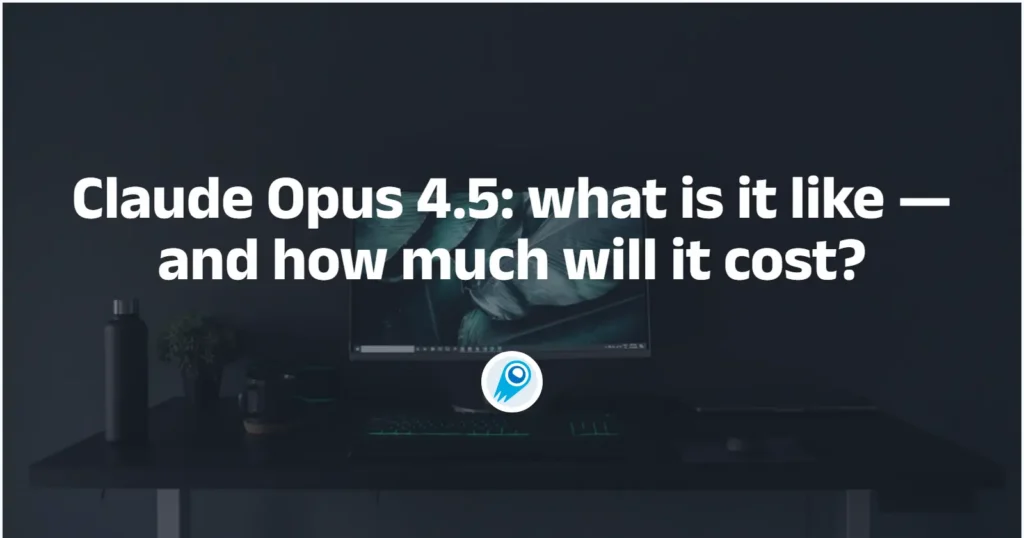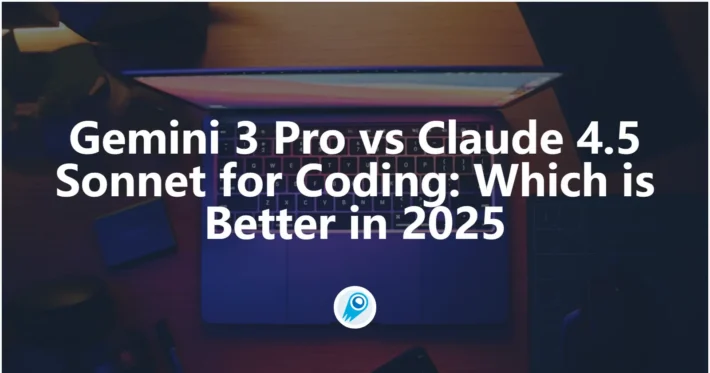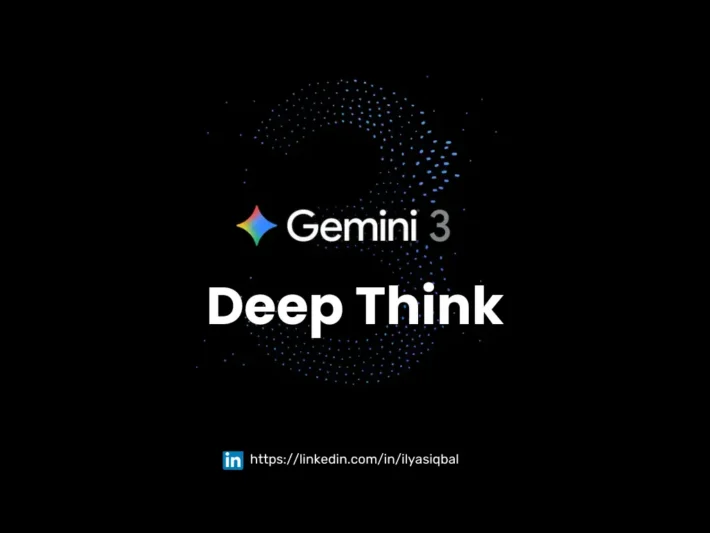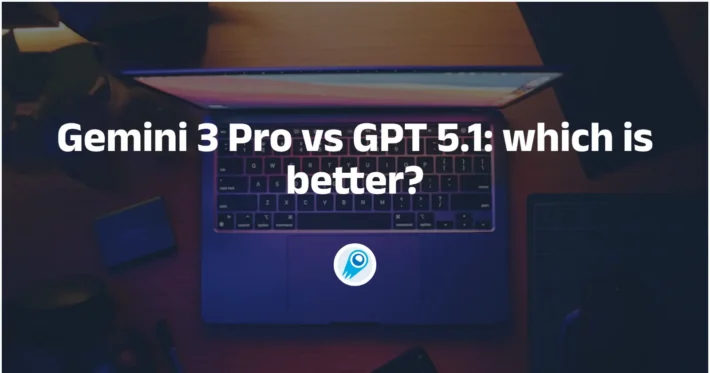Claude Opus 4.5: what is it like — and how much will it cost?

Anthropic’s Claude family has been one of the fastest-moving threads in the 2025 frontier-model race. Over the past few weeks several leaks, social posts and investigative write-ups have pointed to an upcoming Claude Opus 4.5 (often shortened to “Opus 4.5”) — internally referenced by some sources as Neptune V6 — and to the model being shared with external red-teamers for jailbreak testing. Public details are still fragmentary, so this article collects the available reporting, explains what the leak implies about capability and safety, and gives a grounded estimate of likely pricing and how Opus 4.5 might stack up against Google’s Gemini 3 and OpenAI’s GPT-5.1.
What is Claude Opus 4.5?
A frontier Claude 4.5 family member
Anthropic has used names like “Opus”, “Sonnet”, and “Haiku” to denote model families and capacity tiers. Opus has been the label for Anthropic’s highest-capability model in the 4.x generation (e.g., Opus 4.1). Sonnet and Haiku have been used for mid and smaller tiers respectively. That naming convention makes “Claude Opus 4.5” the logical candidate for a new top-end release in a Claude 4.5 series.
“Opus” is Anthropic’s label for the highest-capacity, highest-capability models in the Claude 4 family — the models positioned for the hardest reasoning, research and coding tasks (Opus 4 and Opus 4.1 are the most visible live examples). Opus models are intended to trade higher inference cost for better long-context reasoning, coding performance and robustness on complex workflows, and Anthropic has historically reserved features like extended context handling and “deeper thinking” modes for Opus tiers
What the identifiers tell us: “Opus 4.5” and “Neptune V6”
Two separate threads appear in the public signal stream:
- Developers and community members reported seeing the literal model identifier
Opus 4.5briefly surface in Claude Code CLI requests and repository discussions — a classic early-leak footprint when internal names bleed into logs or PRs. - Several outlets and community posts say the internal codename for the development/red-team instance is Neptune V6; Anthropic has historically used internal Neptune workbench names for pre-release/red-team snapshots. The Neptune name therefore plausibly maps to an internal testing instance of what the external product would be called Claude Opus 4.5.
Bottom line: public signals point to Claude Opus 4.5 being the expected high-capability member of the Claude 4.5 series, currently in testing and (as of the most recent reports) in active red-teaming. The signal set is consistent and plausible but not equivalent to an official product announcement.
How did the leak surface and how reliable is it?
The visible trail of evidence
Three patterns produced the current story:
- A model identifier appearing in developer tooling / pull requests: observers noticed “Claude Opus 4.5”/“Neptune V6” strings in a Claude Code CLI pull request or internal tooling logs — a typical early indicator that an internal model name has migrated into visible workflows. A short X/Twitter post and subsequent reposts flagged that sighting to the broader community.
- Reddit and community chatter: Claude-focused subreddits have been discussing user-reported changes, Sonnet/Opus availability and oddities in performance, and some users claim to have glimpses of 4.5 variants in their beta environments. Community posts are noisy but useful as early signals.
- Anthropic Shares New AI Model with Red Team Members: Tibor Blaho, lead engineer of AIPRM, posted on X (formerly Twitter) that Anthropic sent Neptune V6 LLM to Red Team testers on Tuesday. Interestingly, the leaker also mentioned that the AI company launched a 10-day challenge for external security assessors. They will receive an additional reward if they can find a confirmed, universal jailbreak method within the next 10 days.
How confident should you be?
Moderate caution is appropriate. The evidence chain is classic for early model leaks: internal identifiers leak into tooling or logs, community members spot them, and journalists report them. That pattern has preceded legitimate releases in the past — but it also occasionally points to experiments that are internal and not destined for public release. In short: the existence of a Neptune-codenamed test and an Opus 4.5 identifier in logs is credible
What would Claude Opus 4.5 be like (features and performance)?
What Opus 4.1 already offers
From Anthropic’s announcement and product docs: Opus 4.1 improved agentic workflows, real-world coding, and robust multi-step reasoning. It sits at the premium end of Anthropic’s family and is available via the Claude API, Claude Code, and partners like AWS Bedrock and Google Vertex AI. Because Opus class models are targeted at complex engineering and enterprise tasks, they come with large context windows and safety/guardrail layers.
What Sonnet 4.5 brought that informs expectations for a hypothetical Opus 4.5
Sonnet 4.5 pushed on coding ability, agentic tool use, and extended reasoning — areas that directly overlap with Opus’ mission. Sonnet 4.5 also introduced improvements in math and domain knowledge relevant to finance and cybersecurity; Anthropic framed Sonnet 4.5 as the “best coding model” and best for agent-based workflows. That makes it reasonable to expect any forthcoming Opus 4.5 would borrow Sonnet’s architecture or training improvements and scale them for Opus’ higher-capability regime.
Likely Claude Opus 4.5 feature set (inferred)
If Opus 4.5 follows the product logic of previous Opus upgrades, we can reasonably expect:
- Stronger multi-step reasoning and “extended thinking” by default: better internal chains of thought, longer reliable chains for complex planning and multi-agent orchestration (an area Sonnet 4.5 already strengthened).
- Higher coding and software-engineering ability: fewer hallucinations in code, better cross-file reasoning, improved bug patching and test-generation, and longer context windows for large repositories — the Opus line is explicitly aimed at these tasks.
- Improved tool use and agent orchestration: more stable tool calls, better orchestration of sub-tasks and asynchronous workflows (important for Copilot-style agents and “office agent” integrations).
- Enterprise safety, compliance and explainability features: stronger guardrails, system cards and ASL classifications mirroring Sonnet 4.5’s approach.
- Multimodal upgrades (possibly): better image / code / document understanding for mixed workflows — though Sonnet led that charge, Opus could push that further.
Performance expectations
Measured performance would likely follow the pattern seen across model family updates: Opus 4.5 would aim to outperform Opus 4.1 and challenge or match Sonnet 4.5’s wins on coding and agentic benchmarks—but at a higher cost per token and targeted at fewer but more demanding use cases (enterprise engineering, research, and agentic automation). If Sonnet 4.5 improved coding and reasoning substantially, Opus 4.5 would be positioned to deliver the highest reliability and best “first pass” correctness for mission-critical tasks.
How much would Claude Opus 4.5 cost?
What Anthropic charges today (H3)
Anthropic’s public consumer subscription (Claude Pro) and their API pricing provide the best guidance:
- Consumer / Pro subscription: Claude Pro is listed at $17/month (annual) or $20/month (monthly) for individual productivity use. This gets consumers access to higher-end models and features on Claude.ai.
- API / Opus pricing (confirmed for Opus 4 / 4.1): Anthropic has set Opus-class API rates at roughly $15 per 1M input tokens and $75 per 1M output tokens for Opus 4 / Opus 4.1 in 2025 public documents and multiple pricing summaries. Anthropic also offers prompt caching and batching discounts (prompt caching can drastically reduce repeat-prompt costs; batch processing can get ~50% reductions for large jobs). Those Opus rates are significantly higher than Sonnet/Haiku tiers and reflect Opus’ premium positioning.
Estimated pricing for an Opus 4.5 release
If Opus 4.5 is released, the most conservative (and probable) pricing scenarios are:
No pricing change (most likely): Anthropic keeps Opus 4.5 on the same Opus pricing slab as 4.1 — i.e., ~$15 / $75 per million tokens — and gradually changes actual costs through caching/batching incentives. Opus 4.1 releases historically did not raise baseline Opus pricing, so an incremental improvement could follow the same pattern.
How does an Opus 4.5 (rumored) compare to Gemini 3 and GPT-5.1?
(I compare the current, public claims and benchmarks: Gemini 3 (Google), GPT-5.1 (OpenAI), and the Opus family (Anthropic). For Opus 4.5 I rely on reasoned extrapolation from Opus 4.1 and Sonnet 4.5.)
What Gemini 3 and GPT-5.1 are now
- Gemini 3 (Google): Google publicly launched Gemini 3 in November 2025, positioning it as their most powerful multimodal and reasoning model to date with new agentic features, strong multimodal (text/image/video/audio) reasoning, and top scores on multiple benchmarks (LMArena, GPQA, MathArena, MMMU series). Google is integrating Gemini 3 across the Gemini app, Google Cloud, and developer tools.
- GPT-5.1 (OpenAI): OpenAI rolled out GPT-5.1 in mid-November 2025 as an upgrade to GPT-5 with two variants: GPT-5.1 Instant (snappier, more conversational) and GPT-5.1 Thinking (stronger persistence on complex tasks). OpenAI emphasized conversational improvements, “warmer” outputs, and more user personalization options; they are positioning GPT-5.1 as an iterative upgrade to GPT-5.
Head-to-head expectations
Raw reasoning and benchmark leadership: public benchmark releases suggest Gemini 3 is setting new leaderboard marks across several metrics (LMArena Elo, multimodal benchmarks). GPT-5.1 is positioned as a smoother, more conversational iteration of GPT-5 and performs very strongly on complex tasks; Sonnet 4.5 and Opus 4.1 remain competitive on coding and agentic tasks. An Opus 4.5, if realized, would likely be tuned to beat Opus 4.1 on coding and reliability, but Gemini 3’s public benchmark claims suggest Google temporarily holds an edge on many cutting-edge multimodal and reasoning metrics.
Coding and “using computers”: Anthropic has emphasized Sonnet 4.5’s coding strengths and Sonnet is now described by Anthropic as the best coding model in many tests; Opus historically focuses on the hardest coding and agent use cases. That said, Google and OpenAI are investing heavily in code tooling and agentic platforms — Gemini 3 includes “vibe coding” and agent integrations, and OpenAI has continued to push code capabilities through the GPT family.
Multimodal and agentic workflows: Google’s Gemini line has historically emphasized broad multimodal understanding (images, video, audio, text); Gemini 3 iterates that heavily. Anthropic’s Claude family has prioritized tool use and agent safety; Sonnet 4.5 boosts agentic capability but Opus 4.1/4.5 are expected to be tuned more toward depth and reliability than multi-media breadth. GPT-5.1 attempts to balance both with emphasis on conversationality and customization.
Which model “wins” depends on the product goal: multimodal creativity and large ecosystem automation → Gemini 3; mission-critical engineering, coding and safety-sensitive automation → Opus/Sonnet; expansive conversational customization → GPT-5.1.
Final verdict: what to expect and how to plan
Anthropic is iterating fast: Sonnet 4.5 refreshed the balance of cost and capability for coding and agent tasks, and Opus 4.1 stands as the current premium model for mission-critical engineering and agent orchestration. Rumors of Claude Opus 4.5 are plausible and consistent with Anthropic’s release cadence — but not yet official. If/when Opus 4.5 ships, expect incremental but meaningful gains over Opus 4.1 in reasoning, coding reliability, and agent stability; expect pricing to stay within Opus’ premium slab (with similar input/output pricing and enterprise tiering), and expect the model to remain a high-investment choice for heavy output workloads.
Developers can access Gemini 3 Pro Preview API and Claude Sonnet 4.5 API through CometAPI. To begin, explore the model capabilities of CometAPI in the Playground and consult the Continue API guide for detailed instructions. Before accessing, please make sure you have logged in to CometAPI and obtained the API key. CometAPI offer a price far lower than the official price to help you integrate.
Ready to Go?→ Sign up for CometAPI today !
If you want to know more tips, guides and news on AI follow us on VK, X and Discord!



